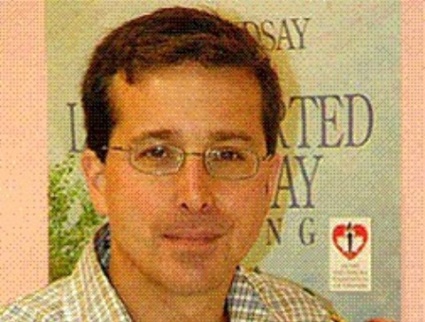January 13, 2010
Managing the complexities of aging

In an interview with The Canadian Charger Dr. George Heckman said that common health problems for older people such as diabetes, kidney and heart trouble, memory loss, disabilities, and depression often collide and, without intervention, lead to people ending up in hospitals or nursing homes.
In an interview with The Canadian Charger Dr. George Heckman said that common health problems for older people such as diabetes, kidney and heart trouble, memory loss, disabilities, and depression often collide and, without intervention, lead to people ending up in hospitals or nursing homes.
The goal of geriatric medicine is to manage the complexities of aging, according to Dr. Heckman, Schlegel Research Chair for Geriatric Medicine at the Schlegel-University of Waterloo Research Institute for Aging, which is a partnership between a local philanthropist and retirement homeowner, the University of Waterloo and Conestoga College.
A sudden change in elderly people is a sign of illness, not aging, Dr. Heckman said.
“Disease in older people presents itself in funny ways. One woman was waking up seeing things every night. She told her husband to call the police because there were children in their house. She became very aggressive and was beating her husband. We found that her symptoms were caused by heart failure. When we treated her for heart failure, she stopped being aggressive, slept better, and her memory improved.”
The goal, Dr. Heckman said, is to diagnose, and then use medication and physiotherapy, and coordinate all the conditions to prevent further decline, which could result in hospitalization.
“There are things that can be done to alleviate conditions many people assume are irreversible. A study in Britain to reduce the number of people in nursing homes resulted in 25 percent of the people thought to need nursing home care, not needing it. This was a result of things such as misdiagnosis, not diagnosing problems and treatments that were causing side effects.”
Meanwhile, preventative measures can be used for a lot of conditions that result in hospitalization, Dr. Heckman said. For example, identifying a vitamin D deficiency or a calcium deficiency can help in the treatment of osteoporosis. He added that because many medications predispose older people to falls, alternative medications, or no medication, may be possible solutions to age-related health problems.
While exercising is often recommended as a preventative health measure, Dr. Heckman said that's easy to say, but how to get seniors exercising is the crux of the matter, especially when many seniors have limitations to begin with, and getting to a gym is not always easy for them. He mentioned the Stay Well Program in Hamilton as an example of seniors benefitting from exercise.
“We designed exercise programs for seniors who were using canes or walkers. It started with a two minute walk, but every year they were in the program they were able to walk two more meters. Their visits to family doctors, hospitals and other healthcare workers were reduced by 75 percent on a yearly basis. People don't realize that some of the things they assume are a one-way street can be improved.”
Memory loss is an example of this. Dr. Heckman said studies show that patients with the support of a caregiver, who are showing signs of dementia, can delay their need for a nursing home for 1.5 years. As well as improving the quality of life of seniors, this is a cost savings on healthcare of $45,000 per year.
He said there is ample evidence that keeping the mind active helps keep people lucid, but they must do different activities.
“You can't do the same thing all the time. You need to have different tasks such as puzzles and numbers.”
Dr. Heckman said a lot of brain age games manufacturers developed their games from neurological studies. He displayed the numbers game Sudoku on his Blackberry as an example of an excellent exercise to keep one's mind sharp. It can also be found in many newspapers.
Diet is also a key factor in preventing age-related illnesses and disabilities. Dr. Heckman recommends a Mediterranean diet, which is includes a lot of fruits and vegetables and little meat, as a means to prevent age-related illnesses.
“Avoid high calorie and junk food. The amount of protein one needs in a day would be the equivalent to a piece of meat the size of a deck of cards. Fruits and vegetables and whole grains are recommended. Studies of people in their 90's who have aged without disabilities shows three prevalent factors: exercise, moderate eating and non-smoking.”
Dr. Heckman will be training the next generation of physicians at The Waterloo Regional Campus of the Michael G. DeGroote School of Medicine. He’ll also perform research designed to benefit frail seniors, in partnership with local retirement homes and hospitals.
He mentioned the University of Waterloo's public health, exercise and physiotherapy schools as examples of different partners coordinating their activities to achieve the common goals of improving the lives of seniors, and thus reducing healthcare costs.
“We'll be working with LIN (Local Health Integration Network) to coordinate geriatric services for the region.
“We can evaluate what we're doing as well as expose all students in the field to aging. Any new therapy developed at the university can be funneled into practice quickly. It's the first time I'm aware of that there is an alternative funding arrangement (from the Ministry of Health) for geriatricians outside of the traditional five medical schools.”








